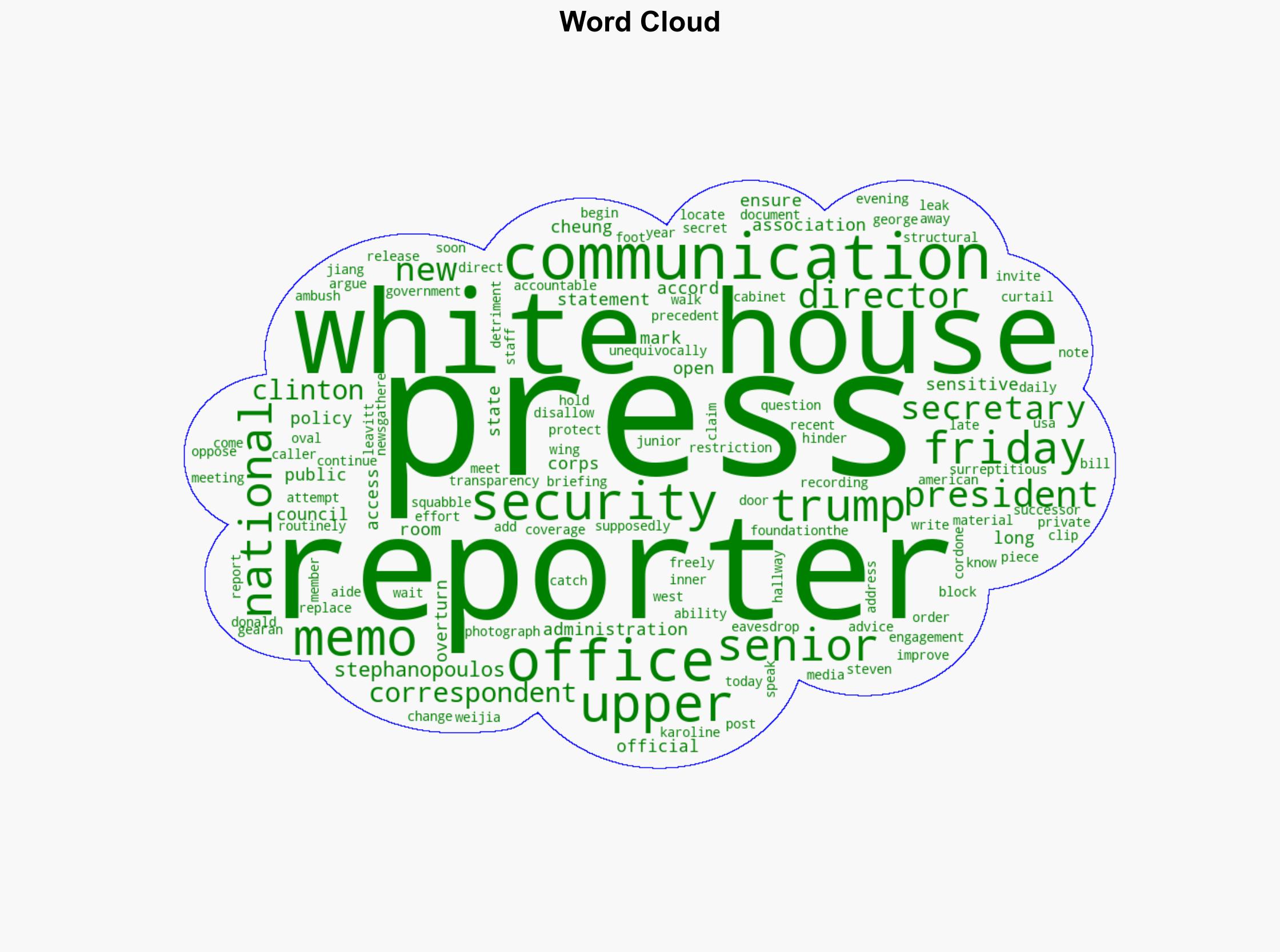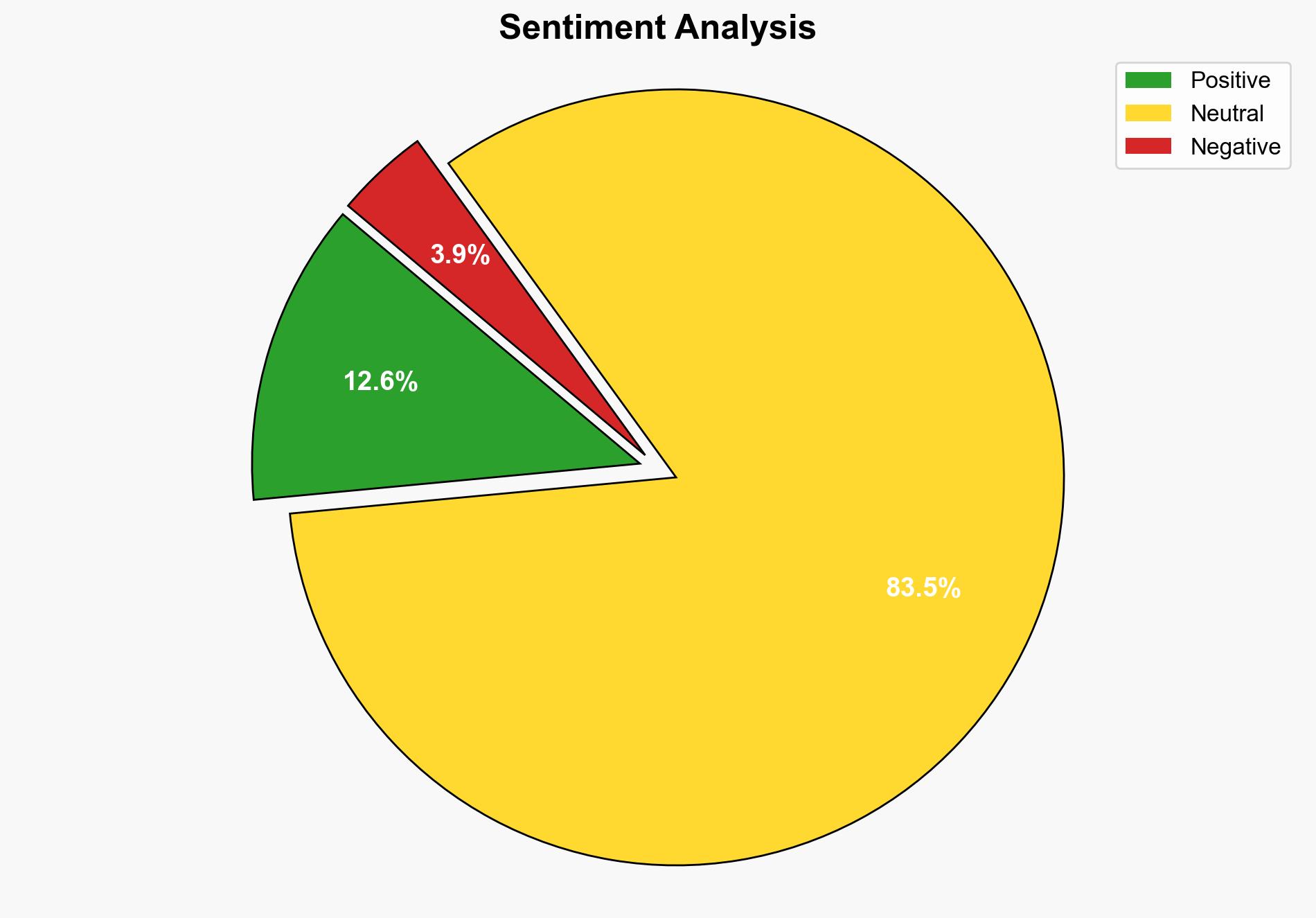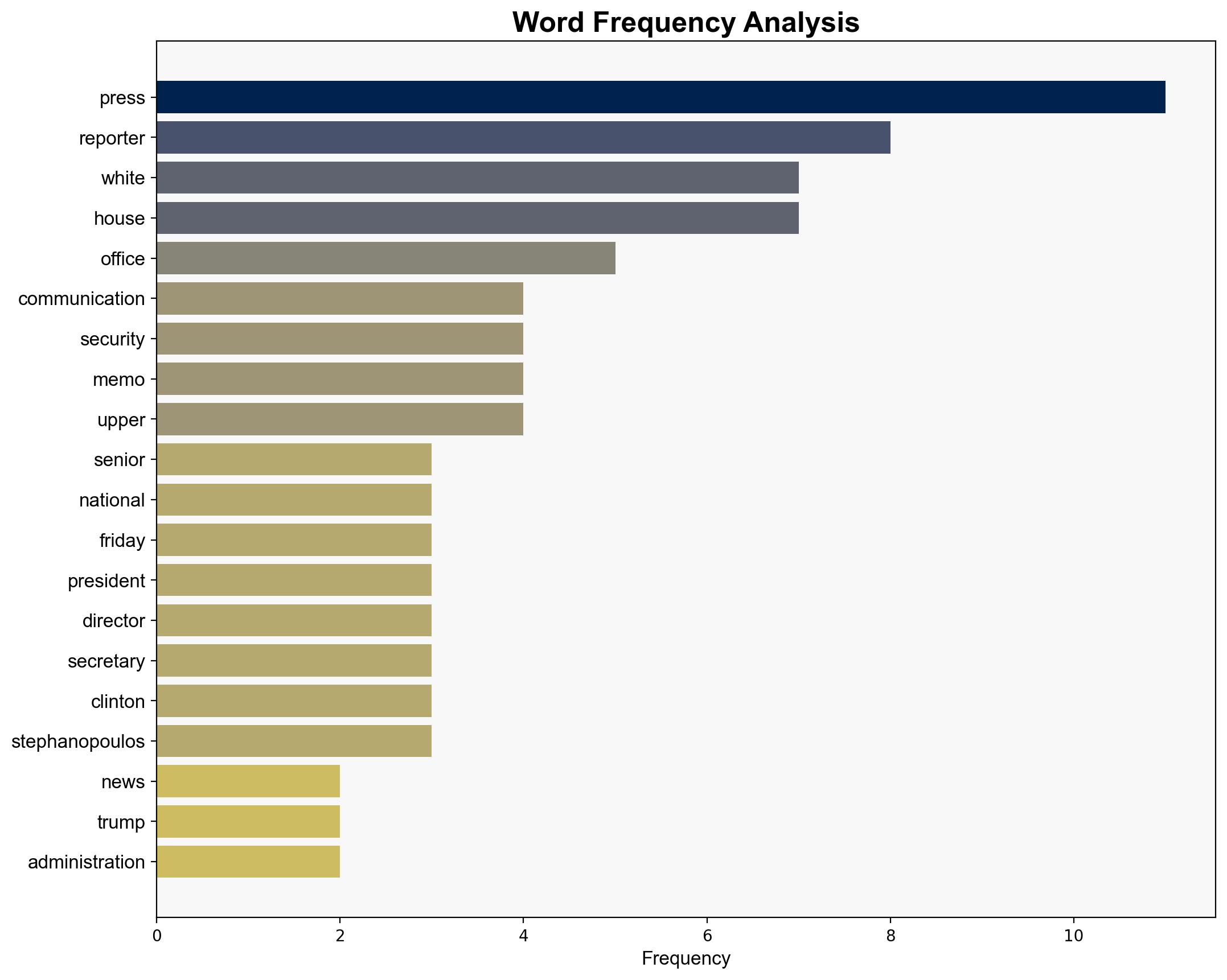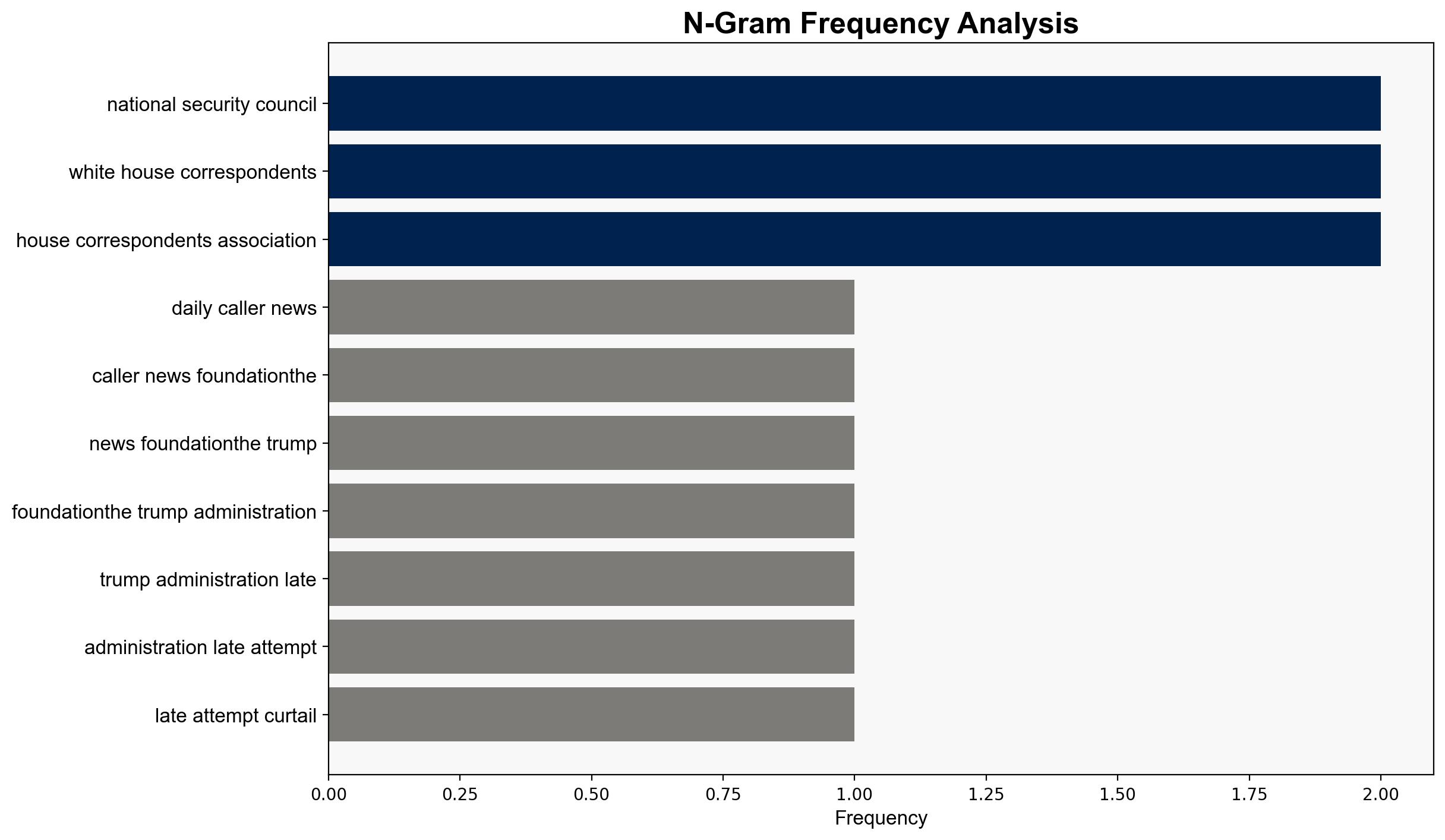White House Cordons Off Reporters From West Wing Communications Offices – Daily Signal
Published on: 2025-11-03
Intelligence Report: White House Cordons Off Reporters From West Wing Communications Offices – Daily Signal
1. BLUF (Bottom Line Up Front)
The recent restriction on reporter access to the West Wing communications offices is likely a strategic move to enhance national security by preventing leaks, with a moderate confidence level. The most supported hypothesis is that this action is primarily driven by security concerns rather than an attempt to limit press freedom. It is recommended to monitor the situation for any shifts in media-government relations and potential impacts on public transparency.
2. Competing Hypotheses
1. **Security-Driven Hypothesis**: The restriction is primarily motivated by the need to protect sensitive national security information from being leaked, as suggested by the memo’s emphasis on security.
2. **Control of Information Hypothesis**: The restriction is an attempt by the administration to control the narrative and limit press scrutiny, as indicated by historical precedents of similar actions being overturned due to public and media pressure.
Using Analysis of Competing Hypotheses (ACH), the security-driven hypothesis is better supported by the memo’s language and the context of recent leaks. However, historical patterns of media control efforts cannot be dismissed entirely.
3. Key Assumptions and Red Flags
– **Assumptions**: It is assumed that the primary motivation is national security, not political control. The effectiveness of the restriction in preventing leaks is also assumed.
– **Red Flags**: The lack of specific incidents cited as justification for the restriction raises questions. The historical precedent of similar actions being overturned suggests potential for reversal.
– **Blind Spots**: The potential impact on press-government relations and public perception is not fully addressed in the available intelligence.
4. Implications and Strategic Risks
The restriction could lead to strained relations between the media and the administration, potentially reducing transparency and accountability. If perceived as an attempt to control the narrative, it may escalate tensions and lead to increased scrutiny from both domestic and international media. This could also influence public trust in government communications.
5. Recommendations and Outlook
- Monitor media reactions and public sentiment to assess the impact of the restriction on government transparency.
- Engage in dialogue with media representatives to address concerns and potentially negotiate access terms.
- Scenario Projections:
- **Best Case**: The restriction effectively prevents leaks without significant backlash, maintaining national security.
- **Worst Case**: The restriction is perceived as an attack on press freedom, leading to widespread criticism and potential policy reversal.
- **Most Likely**: Initial backlash followed by gradual adaptation, with ongoing scrutiny of the administration’s motives.
6. Key Individuals and Entities
– Donald Trump
– Steven Cheung
– Karoline Leavitt
– Weijia Jiang
– George Stephanopoulos
– Mark Gearan
7. Thematic Tags
national security threats, media relations, government transparency, press freedom




